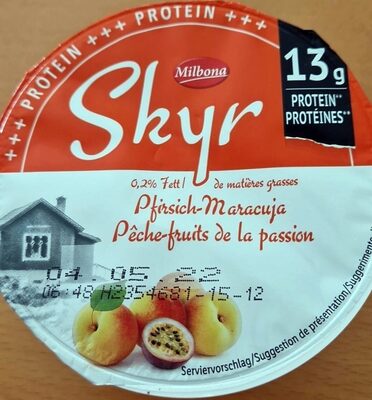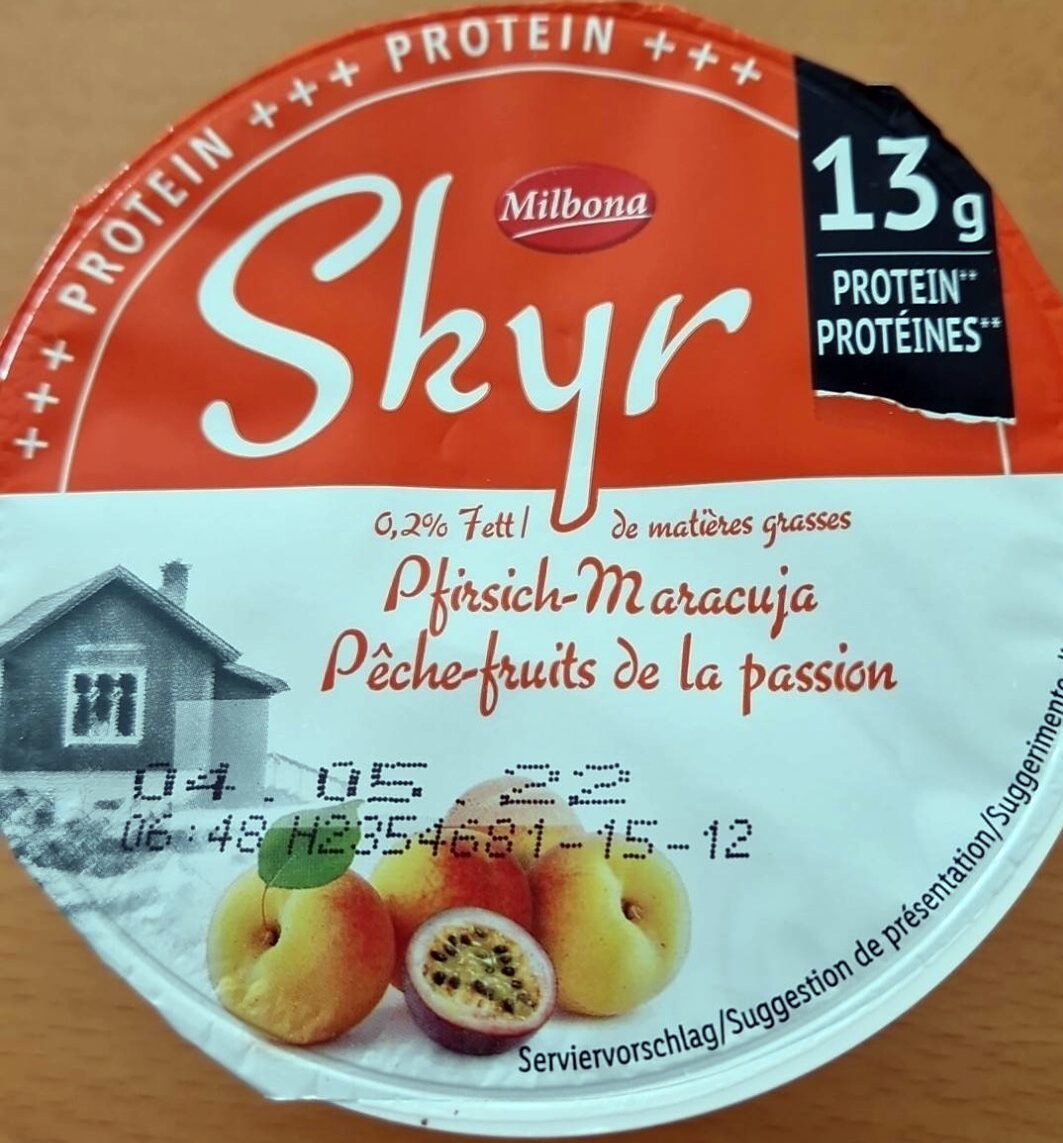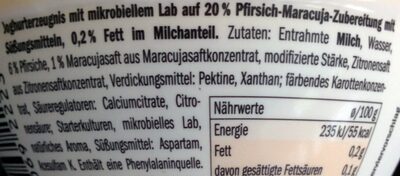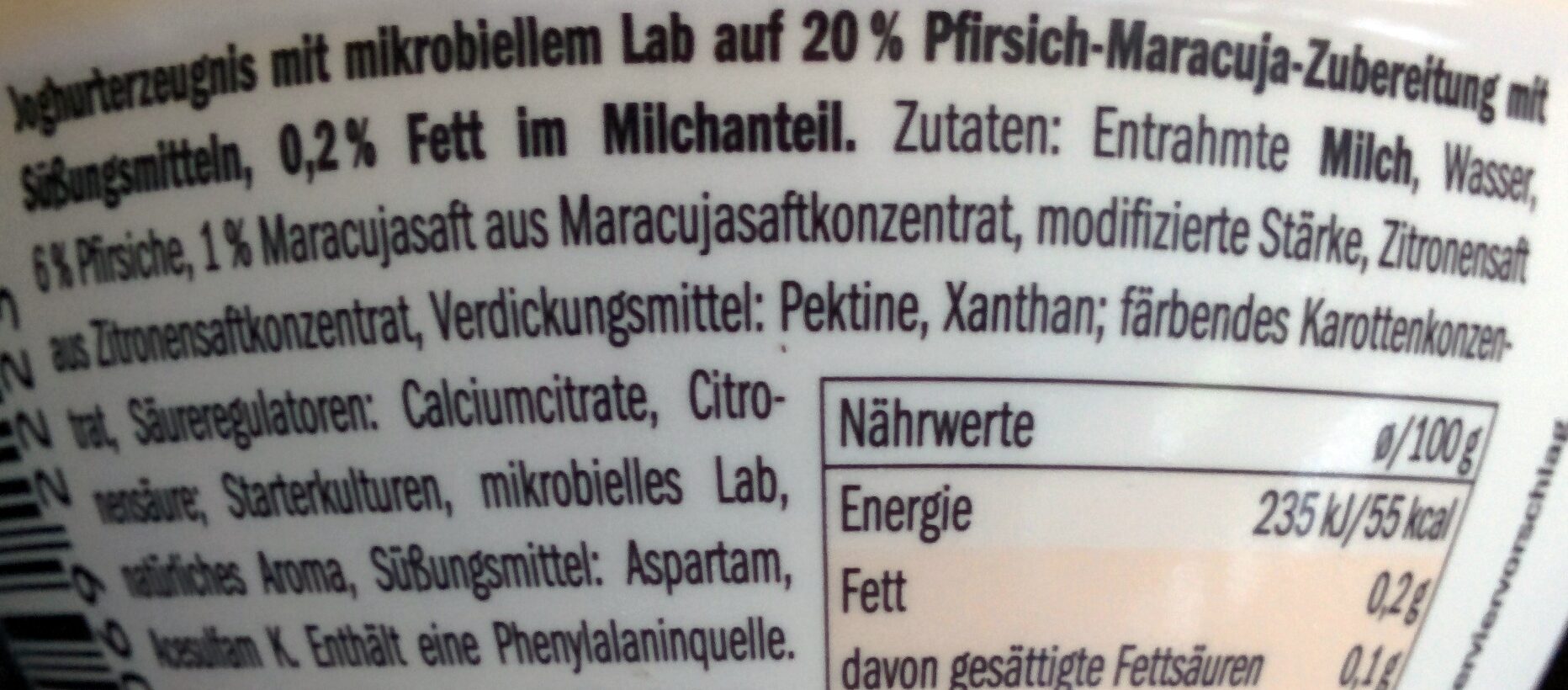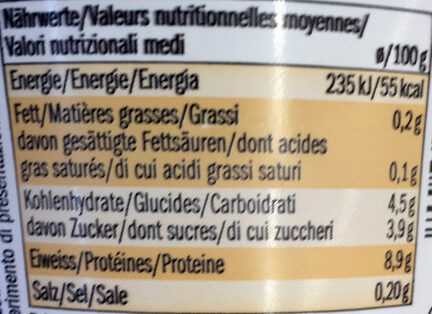Skyr Pfirsich-Maracuja - Milbona - 150 g
Ambiguous barcode: This product has a Restricted Circulation Number barcode for products within a company. This means that different producers and stores can use the same barcode for different products.
×
This product page is not complete. You can help to complete it by editing it and adding more data from the photos we have, or by taking more photos using the app for Android or iPhone/iPad. Thank you!
×
Barcode: 20692223
Common name: Joghurterzeugnis mit mikrobiellem Lab auf 20% Pfirsich-Maracuja-Zubereitung mit Süßungsmitteln, 0,2% Fett im Milchanteil.
Quantity: 150 g
Packaging: Plastic, Pp-polypropylene
Categories: Dairies, Fermented foods, Fermented milk products, Desserts, Dairy desserts, Fermented dairy desserts, Skyrs
Manufacturing or processing places: Deutschland, Schwarzenfeld, Privatmolkerei Bechtel
Traceability code: DE BY-303 EG
Stores: Lidl
Matching with your preferences
Environment
Carbon footprint
Packaging
Transportation
Report a problem
Data sources
Product added on by hangy
Last edit of product page on by takoyaki.
Product page also edited by foodrepo, inf, jokurt, kiliweb, openfoodfacts-contributors, packbot, scanbot, tacite-mass-editor, twoflower, worldtest, yuka.SFowSERLdGZpdDRBaGYwVCt4ekY1UGRhNGNHeGVVU1RGTFJLSVE9PQ, yuka.U0xnd09wMWVoOGtGdnZJYXBFbnE5czVWKzdHUFIyK3VCdmNYSWc9PQ, yuka.UnJzWVFhUU1wTndhZ1BBa3h3ekwwTTVUeTVpWWZrT3RCOHdTSVE9PQ, yuka.sY2b0xO6T85zoF3NwEKvlmh4Vvzkumj4OC3Qlk2zzc2eMJ7qRMEruor9a6s.
